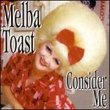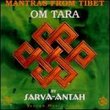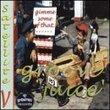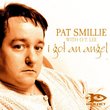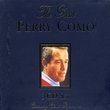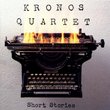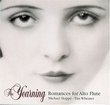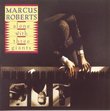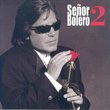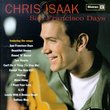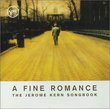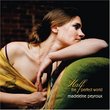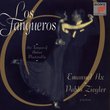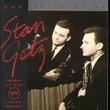| All Artists: Alexander Mosolov, Herbert Henck Title: Alexandr Mosolov Members Wishing: 3 Total Copies: 1 Label: Ecm Import Release Date: 1/25/2000 Album Type: Import Genre: Classical Styles: Chamber Music, Forms & Genres, Sonatas, Historical Periods, Classical (c.1770-1830), Modern, 20th, & 21st Century Number of Discs: 1 SwapaCD Credits: 1 UPC: 028944946024 |
Search - Alexander Mosolov, Herbert Henck :: Alexandr Mosolov
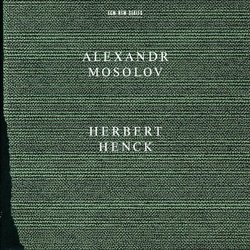 | Alexander Mosolov, Herbert Henck Alexandr Mosolov Genre: Classical
![header=[] body=[This CD is available to be requested as disc only.]](/images/attributes/disc.png?v=0aa29d24) ![header=[] body=[This CD is unavailable to be requested with the disc and back insert at this time.]](/images/attributes/greyed_disc_back.png?v=0aa29d24) ![header=[] body=[This CD is available to be requested with the disc and front insert.]](/images/attributes/disc_front.png?v=0aa29d24) ![header=[] body=[This CD is unavailable to be requested with the disc, front and back inserts at this time.]](/images/attributes/greyed_disc_front_back.png?v=0aa29d24) |
Larger Image |
CD DetailsSimilar CDs
Similarly Requested CDs
|
CD ReviewsDark and different Paul Geffen | 03/07/2001 (4 out of 5 stars) "Alexander Mosolov (1900-1973), too, uses his own distinctive scheme of tonal organisation, different from Roslavets, and different from the Vienna School as well. His sonatas are technically very complex and difficult, and symphonically oriented, exploiting the full resources of the modern instrument. The noctures are miniatures, less driven, less intense, gentler, but dark and brooding, a melancholy night, gloomy with a few glints of light.Most of Mosolov's music is filled with raging passion and dark colors, sadness, despair, longing, resignation, no resolution, and no triumph. His expression markings include "lugubre" and "feroce" and dozens of shades in between. This represents his emotional range. Thematic material is obscure, no melodies, fragments of themes, shreds and shards projected with furious intensity, driven, but (certainly in this performance) not mechanical or motoric. This is in spite of Mosolov's Futurist leanings and links with "machine music." He always makes us aware of the piano as a mechanical device, but never merely that.Herbert Henck puts this difficult material across in a beautiful, spirited performance and finds a lot of lyricism behind an often forbidding surface. (But when you're done listening you still won't remember any of the tunes.)The recording and production are up to the highest possible standards, as with all of ECM's releases, which are unsurpassed. The liner notes, by the performer, are exemplary and show him to be as eloquent on paper as he is on the keyboard. The notes significantly enhance the enjoyment and understanding of the music." Hellish, Bleak, and Violent Piano Music from a Repressed Sov Hexameron | 03/09/2008 (5 out of 5 stars) "Alexander Mosolov (1900-1973) was a preeminent figure in the Russian avant-garde movement of the early 20th-century. He was, along with Roslavets, Lourie, and Myaskovsky, considered a cutting-edge modern Soviet composer, but after the rise of Stalin, he and his fellow modernists were viciously repressed and purged from public knowledge. Although he studied under traditional Russian teachers like Gliere and Myaskovsky, his own works explore nether regions that few Soviet composers expressed. If Mosolov is famous for anything, it is most likely his Zavod or "Iron Foundry" orchestral work, which exploits the instruments to evoke the sound of machinery. Mosolov's piano works, however, are of another vein and show some of the most inventive and expressive possibilities of any Soviet composer. Indeed, the "modernism" of these works appeared threatening enough to Stalin, who sentenced Mosolov to eight years in a labor camp. Mosolov's piano output is limited but highly original. Of his five piano sonatas, four have survived and they exhibit an impressive amalgam of expressive attributes. Although moments of Scriabinesque beauty and passion occur throughout these works, Mosolov's music is overwhelmingly dreary, intense and tinged with high-voltage aggression. Hints of Roslavets emerge in the tonality, but the influence of Prokofiev and Shostakovich vis-a-vis dissonance and percussive rhythm are more apparent. However, Mosolov's idiom is not derivative and is expressively darker than his contemporaries. The Second Piano Sonata (1924) is a masterpiece that few piano connoisseurs know about. Although the work may share a close kinship with late Scriabin, Mosolov creates his own unique sound world: an eerie and depressive atmosphere. The first movement is a 10 minute essay of impressionism and brutality; quiet moments of poignancy contrast with maddening explosions of dissonance. The second "Adagio" movement is a fresco of despair and is almost painfully bleak; the first section features an achingly slow melody with an accompaniment that climbs upwards chromatically and never to any resolution. In the Finale, marked "Allegro tumultuoso, infernale" there are terrifying gusts of virtuosic passage-work that Herbert Henck commands with ease. The Two Nocturnes Op. 15 date from 1926 and are far removed from the quiet salon genre of the 19th-century. Mosolov's night pieces excavate the darkest regions of the soul. The first, "Elegiaco," is a sinister and gloomy miniature tone-poem, but I believe Schleiermacher's brooding performance (Soviet Avant-Garde) is greater than Henck's. The second, "Adagio" nocturne is similarly mysterious and somber with tinctures of rage. So far, Henck has produced admirable interpretations of Mosolov's music. But the Fifth Sonata loses its forcefulness in his hands. Henck does fine in the first three movements: the "Lento grave" is dynamically expressive and alive with surging energy; the "Elegia" is played fast and the tempo suits this movement better; the "Scherzo marciale" is a hurricane of anger and played with conviction. The last movement, however, and the heart of this entire sonata is played much too fast. Marked "Adagio languente e patetico," this movement is perhaps the most grisly and ominous piano music I've ever heard, and it needs to unfurl slowly. Lombardi understands this and plays it like a dirge with grim determination. But Henck plays with some kind of unyielding "Andante" tempo in his mind, losing the whole "languente" funeral attitude. Compare Lombardi's 13-minute accomplishment to Henck's 8:40 marathon! For this kind of movement, I must urge the reader to trust Lombardi's interpretation and buy the Arte Nova release for the Fifth Sonata (Alexander Mosolov: Piano Works). Bottom line: Despite my problem with Henck's last movement of the Fifth Sonata, this disc is invaluable to the growing revival of Mosolov's music. This is one of the only available recordings to showcase the Second Sonata and the Two Nocturnes. Mosolov's music is not for the faint-hearted; it is perhaps the darkest and most pessimistic piano music ever penned. If you're comfortable with late Scriabin, Roslavets, Prokofiev, and 20th-century dissonance, then Mosolov should be revelatory." Bleak, sinister stuff Paul Geffen | 10/20/2003 (5 out of 5 stars) "Mosolov's stuff is hard to find, but ECM shines through by releasing this recording of Henck playing these black pieces. Highly recommended"
|

 Track Listings (9) - Disc #1
Track Listings (9) - Disc #1